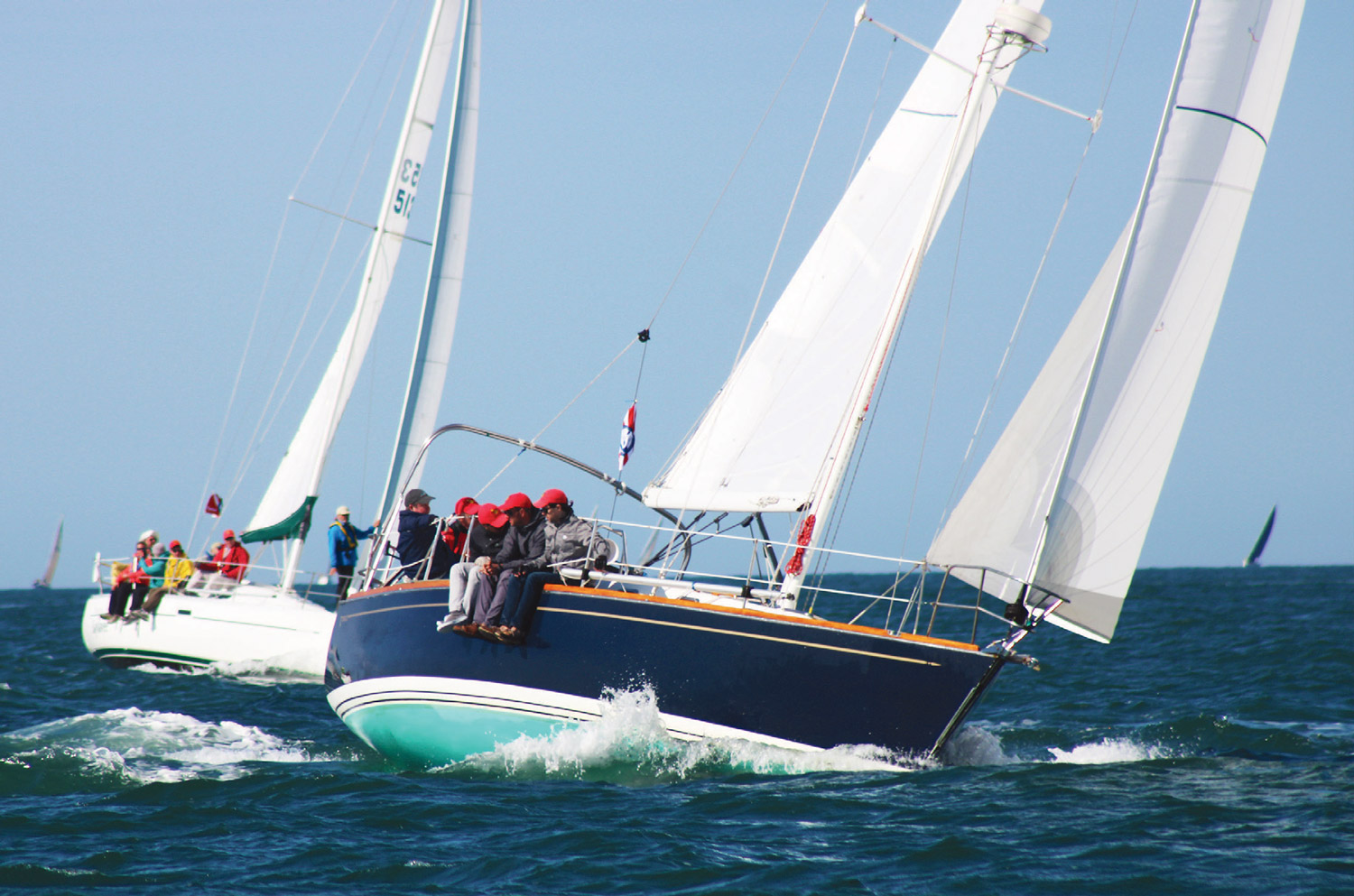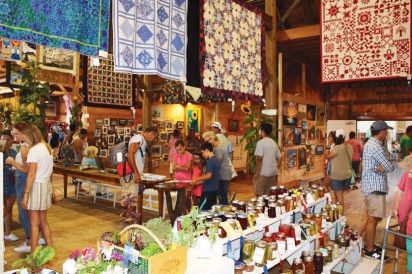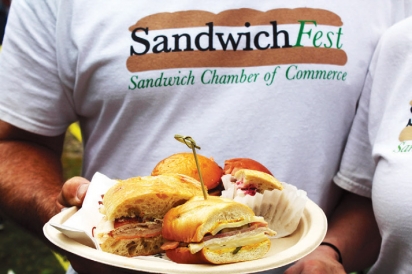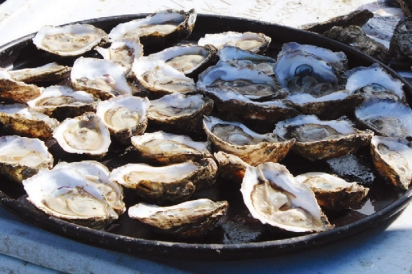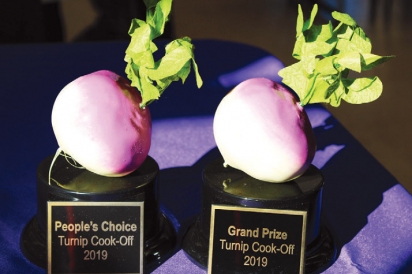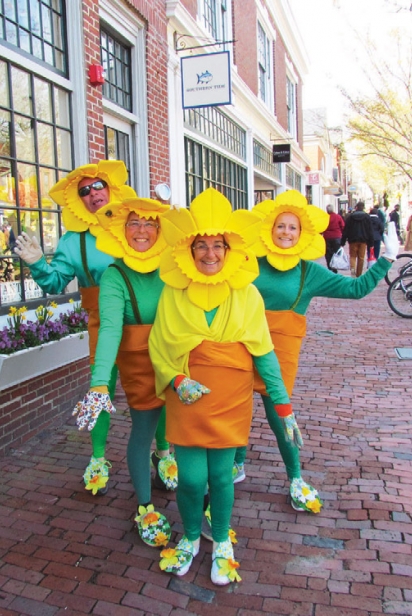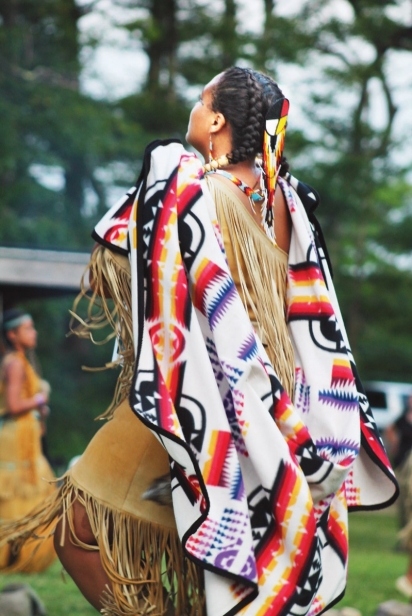Celebrating Cape Cod & the Islands: Traditions, Festivals, and Food
Hydrangeas, oysters, turnips, sailing, art, science or film — there is a festival to celebrate each of these as part of our region’s rich heritage, diverse traditions, cultures, and foods. The number and range of Cape Cod festivals will surprise visitors and even long-time residents — forty of them, spanning early spring to the end of the year. For some of the most prized seafood in the world, the Wellfleet OysterFest is renowned. For grand cuisine and wine, you can choose from two festivals. There are seasonal celebrations of daffodils, windmills, road racing, Greek, Portuguese, and indigenous cultures. On July 4th, the Wampanoag offer food, dance, drumming, and importantly, the opportunity to keep tribal traditions alive and for visitors to share in them.
A recent book, Celebrating Cape Cod & the Islands: Traditions, Festivals, and Foods, by Kathryn Kleekamp, offers a good look at all the large festivals and many of the smaller ones. Kathryn, a resident of Sandwich for the past 25 years, initially considered writing about her town’s SandwichFest, but her publisher found the subject too narrow. Were there any other Cape festivals?
“Oh my, yes!” Kathryn answered. “In every town there are festivals celebrating the land and water, history, and long traditions.” She remembers that, “the brightest light went off in my head.” She compiled a list, surprised herself to find that many of the festivals had not been written about in detail and had not been considered together from a cultural perspective. The publisher approved the idea, and Kathryn began gathering information across the Cape and islands. She contacted all the towns, recreation departments, and festival organizers, researched library records, online resources, magazines, and newspapers. She drew also on her own experiences of family visits to festivals over the years.
Next, she acquired a digital camera with a telephoto lens, took a tutorial on how to use it, and started off. The result is a tour in words and photographs of the events — which range from the purely fun to the fun-but-serious with fundraising activities to benefit their communities. Historical background about the festivals’ origins is provided, plus engaging glimpses of the people behind them, and, not least, the food. Kathryn gathered signature recipes reflecting the region’s bounty, including oysters, lobster, and cranberries. She tested them herself (excepting those submitted by professional chefs), and in the spirit of her subject, she includes ideas for what you might enjoy at festivals that aren’t centered around food, local agriculture, or fishing. The logistics alone would seem daunting, yet she researched and wrote the book in a year. Kathryn knew precisely what she wanted to accomplish and focused on that. “It was so clear in my mind. I wanted to get word out about the festivals so other people would know about them — and visit.”
There is more to it than that, of course. I sensed that it took a good, fresh eye to see what others had missed. I found that she fell flat-out in love at the age of ten when she first saw the Cape with her mother on a short vacation. The place entirely captured her imagination. “I lived in an apartment in New York City and found this so very different from anything I knew,” she said. Staying in a room near the beach in Orleans, she woke up one morning and walked alone down to the water. “It was absolutely overwhelming to see the ocean for the first time,” she recalled. “I almost didn’t know how to process it, the vastness of pure nature as far as I could see.
“We had a park at the end of our street in New York,” she added, “but nothing prepared me for this sight — and a sense, though I didn’t have words for it at the time, of...infinity.” She never forgot and years later began returning to Cape Cod for summer vacations with her husband, Charles, and their children. Kathryn worked as a microbiologist for 30 years. “Retiring”, she and Charles settled into a picturesque house overlooking Shawme Pond in Sandwich, and Kathryn began working as an artist and writer. Again, she found herself thinking, as she had as a girl, “I know nothing about the Cape; the thing to do is to learn.” Volunteering as a children’s tour guide at the Thornton Burgess Society, she received training and went on field trips with the kids. “I saw a lot!” she recalls, as she began to understand just how rich and multifaceted the region, the people, and the cultures were. Her paintings, which reflect this understanding, are shown at Collections Gallery in Sandwich, and prints of her work are available at the Dan’l Webster Inn.
The reason it took a year to research and write the book, she explains with a laugh, is that, “I wanted to visit all the festivals.” Clearly, she loves what she does, which is why the project did not seem difficult. Kathryn is also methodical, a trait undoubtedly carried over from her former profession.
Asked if she has a favorite festival, she says it really varies with the season. Pressed, she admires the stunning beauty of the Daffodil Festival, because schoolchildren were involved in volunteer efforts and helped plant the four million flowers that bloom in gold, pale yellow, and platinum from mid-April to May across Nantucket. The island, with its considerable conservation land, is open to all, she points out, and the festival work, which began over 40 years ago, beautifies that land. Then, close to her heart is the legendary Figawi Race, held Memorial Day weekend. (Kathryn and her husband met at the University of Michigan sail club.) Thirteen classes of boats ranging from fine yachts to smaller weekend boats compete in the 24-mile race starting in Hyannis. The festive weekend includes a junior invitational event for high school students who race sailing dinghies. The event, as many of the festivals do, raises significant funds for local charities. Then there is the chocolate festival, the Barnstable County Fair...she trails off and concludes, “There are just so many, it’s hard to choose!”
ArtWeek features theater, the visual arts, music, writing, duck-carving, and other crafts. The “party to end all parties” is Provincetown’s Carnival, which lasts a week and typically draws 100,000 visitors. At the other end of the spectrum, traditional Christmas “strolls” take place in many of the Cape’s towns, with caroling, historic house visits, and cookie sales and samplings.
Many festivals have been curtailed for the past two years or postponed, but now may be a good time to discover them and plan a visit for when full activities resume. Before you go, just be sure to confirm dates and details on festival websites, including any admission limits or other guidelines.
Celebrating Cape Cod & the Islands: Traditions, Festivals, and Food is available at bookstores throughout Cape Cod and the Islands. Personalized copies (at no additional cost) can be purchased through Kleekamp’s website, kleekampfineart.com


